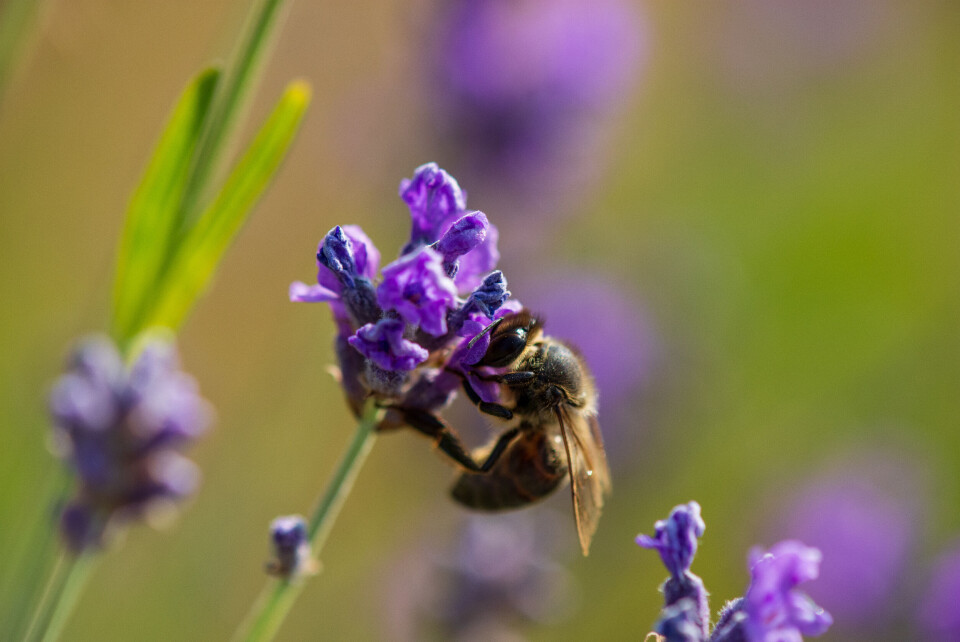-
Exemption from fees to register electric car to end across most of France from May
Applying for a carte grise will soon become more expensive
-
New agreement to help with home renovations launches in Dordogne
The plan aims to connect citizens with local public renovation services to modernise old housing stock
-
White storks make strong return in France via nest ‘platforms’ and clipped wings
The Ligue pour la Protection des Oiseaux shares the conservation challenges in saving these birds from extinction
Why are bees dying in winter? French beekeeper survey may help
We look at how beekeepers are joining forces to save colonies and why the bee is an important symbol in France

Beekeepers are stepping up efforts to look after their hives after a recent decline in their bees’ health and population size over the winter months.
The importance of bees (abeilles) to the ecosystem is well known, including the impact they have on diversity of plant and animal life.
A decline in their numbers poses risks to long-term food security and ultimately human health, and France is not exempt.
Read more: Are there more wasps in France this year? Yes, says expert
Annual survey monitors mortality rates
The situation is being monitored by an annual survey, which marked its fifth year this March.
Epidemiologist Marion Laurent said: “The enquête nationale de mortalité hivernale des colonies d’abeilles (Enmha) allows us to estimate the mortality rate of bee colonies during the winter as accurately as possible and to generate hypotheses on the potential risk factors for this.”
Ms Laurent works with animal health surveillance platform ESA, which brings together a number of organisations concerned with beekeeping in France.
Its survey was originally launched when beekeepers reported an increase in the deaths of bee colonies in various regions in France during the winter of 2017-18.
Estimates put the mortality rate at 29.4% that year. The latest figures, for the winter of 2020-21, suggest it was 24.8%.
Report on dead and weak hives
To help collect data on French bee stock and assist with health management, beekeepers must declare how many colonies are owned or held each year.
If they provide consent to be contacted by email, they will receive an invitation to take part in the survey.
“It should be noted that winter mortality, as considered in the survey, includes hives that at the end of wintering were considered dead – the hive contained only dead bees or the hive was empty – but also hives commonly referred to as non-value, i.e., alive but with queen problems, or too weak to produce in the spring without intervention by the beekeeper,” said Ms Laurent.
No solution for Asian hornet
While the lifespan of bees can vary greatly, from two weeks to more than five years, depending on the species and its role in the colony, apiculteur Audric de Campeau is familiar with the mortality issues that beekeepers are facing.
“The causes are mainly parasites: the varroa destructor mite, the Asian hornet, but also viruses.
“Everything is done at the end of summer in terms of correct treatments against these parasites, which constantly weaken the colonies, but unfortunately against the Asian hornet there is no miracle solution yet.”
Read more: ‘Sex traps’ can control Asian hornets, new French-Chinese study shows
Historic significance of bees in France
France has a long association with bees, including as a symbol of strength, bravery and unity.
Childeric I (437-481 AD) was the first royal in France to use the bee as an emblem and numerous golden bees were discovered in his tomb in Tournai in 1653.
Later, when Napoléon I was looking to create a ‘brand’ for his empire, he followed suit and used bee imagery as well.
An admirer of Childeric, he also noted that the bee represented hard work, diligence and order. It fitted his vision perfectly.
Education on apiculture, or beekeeping, was made popular by Claude-Philibert Lombart (1743-1824), a lawyer and prosecutor in the Parlement de Paris.
Early understanding of ecosystems
Not long after, Henri Louis Hamet (1815-1889) thought the Jardin du Luxembourg would provide the perfect backdrop for ruches d’abeilles (beehives) and to host courses.
He founded the Société centrale d’apiculture (SCA) in 1856 and began teaching beekeeping techniques, as well as promoting the essential role of the bee and other pollinators in ecosystems.
The Syndicat national d’apiculture (SNA) was formed in 1920 and was the first union to defend bees and beekeepers, while the Union nationale de l’apiculture française (Unaf) has supported the protection of bees and their environment since 1945.
State support for beekeeping
During the last decade, several initiatives have been put in place to help apiculteurs in France.
In 2013, the government released a sustainable development plan for beekeeping.
This included increasing the number of bee colonies, training young beekeepers, and ensuring that ecological areas can benefit the bee.
Pesticide u-turn
The beekeeping community celebrated another big win in 2018 when the Assemblée nationale banned the use of neonicotinoid pesticides, which are known to have contributed to the collapse of France’s honeybee colonies and affect their nervous systems.
Just two years later, however, MPs voted for their reintroduction to allow beet farmers to protect their crops from sugar beet jaundice.
Related articles
‘Our hives protect bees’: alternative way of beekeeping made in France
French beekeepers experiment with indoor hives in bid to save bees
How winemakers in France are reducing pesticide use
























